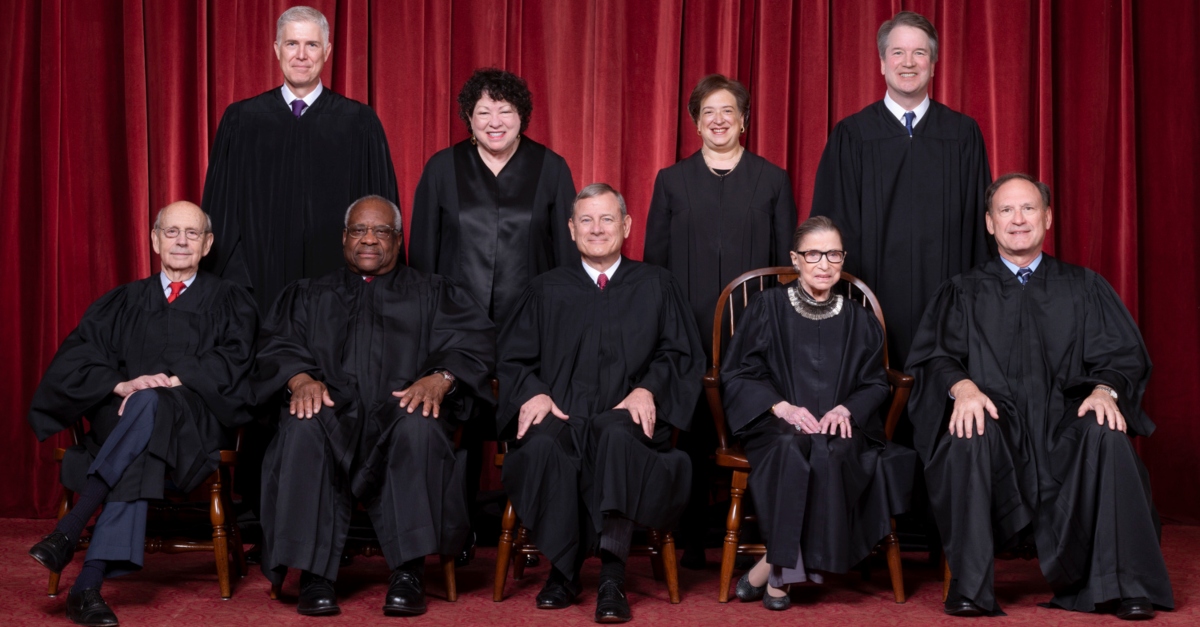
The Supreme Court of the United States handed down 7-2 opinion on Wednesday in Morrissey-Berru v. Our Lady of Guadalupe; the two consolidated cases asked whether religious schools are exempt from federal anti-discrimination laws.
Agnes Morrissey-Berru was a sixth-grade substitute teacher who brought an age-discrimination claim, and Kristin Biel was a fifth-grade teacher who claimed to have been the victim of discrimination under the under the Americans with Disabilities Act. In both cases, the Catholic school defendants argued that the teachers have no protection from anti-discrimination laws, because teachers are “ministers” within the meaning of what’s known as the “ministerial exception.” Under 2012 Supreme Court precedent, religious institutions have full freedom to decide who will hold positions as religious leaders – and those not chosen have no grounds to claim discrimination.
Justice Samuel Alito penned the decision for the majority, which found that the First Amendment protects the schools’ right to hire and fire teachers without adherence to anti-discrimination laws.
Because the teachers instructed their students on matters of religion and prepared them for mass, they count as “ministers”–even though they were not religious experts, and one wasn’t even a practicing Catholic. The court held that under the relevant precedent, it isn’t the title that determines “ministerial” status, but rather the person’s function:
What matters, at bottom, is what an employee does. And implicit in our decision in Hosanna-Tabor was a recognition that educating young people in their faith, inculcating its teachings, and training them to live their faith are responsibilities that lie at the very core of the mission of a private religious school.
Teaching, wrote Justice Alito, is central to the practice of religion; accordingly, religious schools deserve autonomy in maintaining “the close connection that religious institutions draw between their central purpose and educating the young in the faith.”
Conservative Justices Clarence Thomas and Neil Gorsuch agreed with the majority’s decision. Thomas wrote a separate concurrence which Gorsuch joined. Thomas again emphasized what he said in the prior case on this issue:
I write separately, however, to reiterate my view that the Religion Clauses require civil courts ——————to defer to religious organizations’ good-faith claims that a certain employee’s position is “ministerial.”
The courts, Thomas wrote, should stay out of it:
This deference is necessary because, as the Court rightly observes, judges lack the requisite “understanding and appreciation of the role played by every person who performs a particular role in every religious tradition.” What qualifies as “ministerial” is an inherently theological question, and thus one that cannot be resolved by civil courts through legal analysis…
The two dissenting justices were liberal Justices Sonia Sotomayor and Ruth Bader Ginsburg. Calling the majority’s decision a “simplistic approach” that “has no basis in law and strips thousands of schoolteachers of their legal protections,” the dissenters slammed the majority for allowing teachers to be fired “for any reason, whether religious or nonreligious, benign or bigoted, without legal recourse.”
The “ministerial exception,” argued the dissent, is judge-made doctrine with a mere eight-year history. “When it applies,” Sotomayor chastised, “the exception is extraordinarily potent: It gives an employer free rein to discriminate because of race, sex, pregnancy, age, disability, or other traits protected by law…”; under the exception, “an employer need not cite or possess a religious reason at all; the ministerial exception even condones animus.”
Further, argued the dissent, because the case was on appeal at the summary judgment phase, the court should have looked at the facts in the light most favorable to the plaintiffs. Calling out the majority for ignoring relevant facts, and failing to even mention Kristin Biel, the dissent delved into the background.
Sotomayor said that Kristin Biel–a teacher who had minimal religious training and responsibilities—passed away last year, “losing her life to the same cancer that allegedly lost her a job at St. James.” Similarly, when a 60-year-old Ms. Morrissey-Berru was fired, her employer school did not even argue that its had been based in religion.
Per the dissent, a decision that employs the “ministerial exception” to teachers who did not themselves practice the religion at hand, “stretches the law and logic past their breaking points.” Sotomayor criticized the majority’s decision for swinging the pendulum of religious freedom too far, “permitting religious entities to discriminate widely and with impunity for reasons wholly divorced from religious beliefs.” Sotomayor and Ginsburg warned that the “inherent injustice in the Court’s conclusion will be impossible to ignore for long, particularly in a pluralistic society like ours.”
[Photograph by Fred Schilling, Supreme Court Curator’s Office]